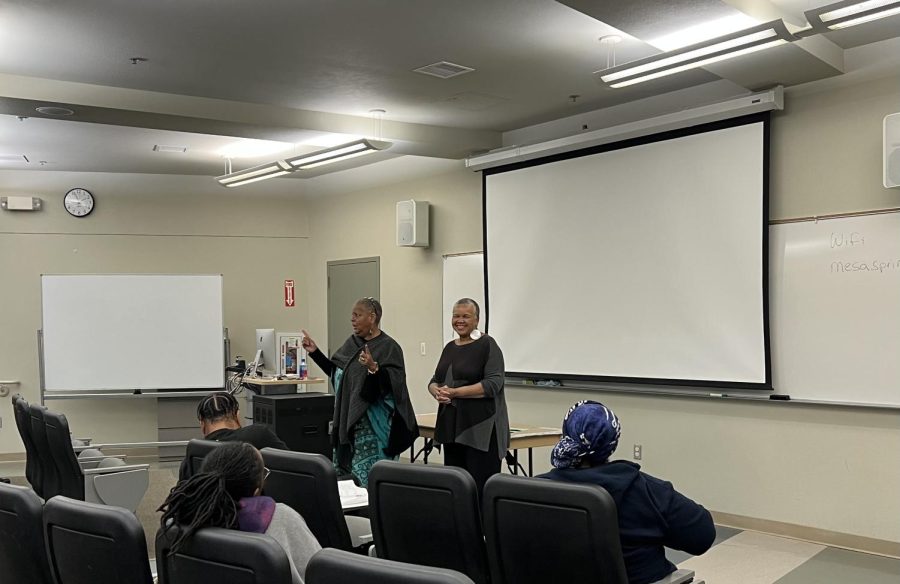In honor of Black History Month, Dr. Thekima Mayasa hosted a film screening of the movie “Till,” on Feb. 15. Students of all ages and races gathered to hear the story of the brutal death of Mamie Till-Mobley’s 14-year-old son, Emmett Till.
The film “Till,” written and produced by Keith Beauchamp, and directed by Chinonye Chukwu, is a tear-jerking drama that tells the brutal story of the abduction and murder of Emmett Till, and the events that followed, from his devastated mother’s point of view, Mamie Till Mobley.
Emmett Till, born on July 25, 1941, in Chicago, Illinois, was accused of flirting, touching, and making erotic comments toward Carolyn Bryant, a store cashier in Mississippi, on Aug. 24, 1955. Carolyn Bryant’s spouse, Roy Bryant, learned of the alleged offense and kidnapped Till from the residence of Moses Wrights with the help of his half-brother, John W. Milam, and three other men, on Aug. 28, 1955. At gunpoint, Till was forced into a car and driven to a farm owned by John W. Milam’s brother, Leslie Milam. At this location, Till endured a brutal beating and was shot in the head. After being driven to another location, Till’s body was tied to a cotton gin fan using barbed wire and rolled into the Tallahatchie River. His body was later found in the Tallahatchie River, dismembered and swollen, on Aug. 31. Though Roy Bryant and John W. Milam were arrested for kidnapping on Aug. 29, 1955, they were later acquitted of all charges.
Till’s mother began her fight for justice by spreading awareness with an open casket funeral to reveal the cruelty her son underwent, and allowing photographs of Till’s body to be published. Till’s mother went on to give speeches across the country and sparked the Civil Rights Movement.
After the film screening, Dr. Mayasa hosted a discussion, further explaining the movie, sharing her experiences with racism, and allowing students to share their own. Opening the discussion Dr. Mayasa had the students close their eyes. “Take a minute to imagine a loved one that’s missing who you’d just seen, and I’d like for you to imagine they have been found dead. What does it feel like to feel the anxiety, the uncertainty?” She said. “What are the questions running through your mind about not only them but maybe what you could have done differently to protect them? As you think about these things, maybe think about what Emmett Till’s mother went through.”
The room sat still as emotion filled the air. The discussion of race took root, and Dr. Mayasa asked willing students to share their thoughts on the current status of racism in the United States. “I love everything about this place but everything seems covered in darkness and just bad,” says a Mesa College student. Dr. Lewis, a guest of Dr. Mayasa and participant in the discussion strongly urges students to stand up for the abolition of racism saying “your voices are essential!”




